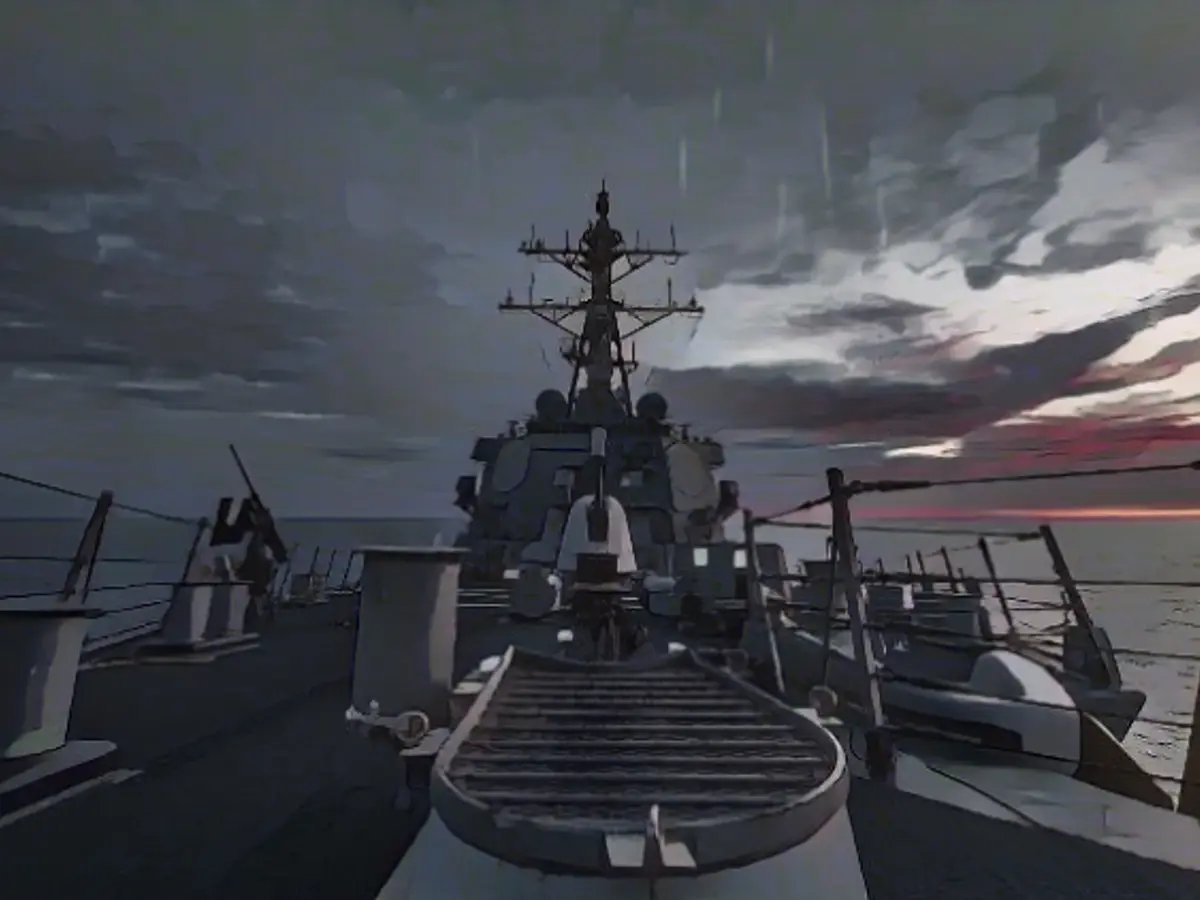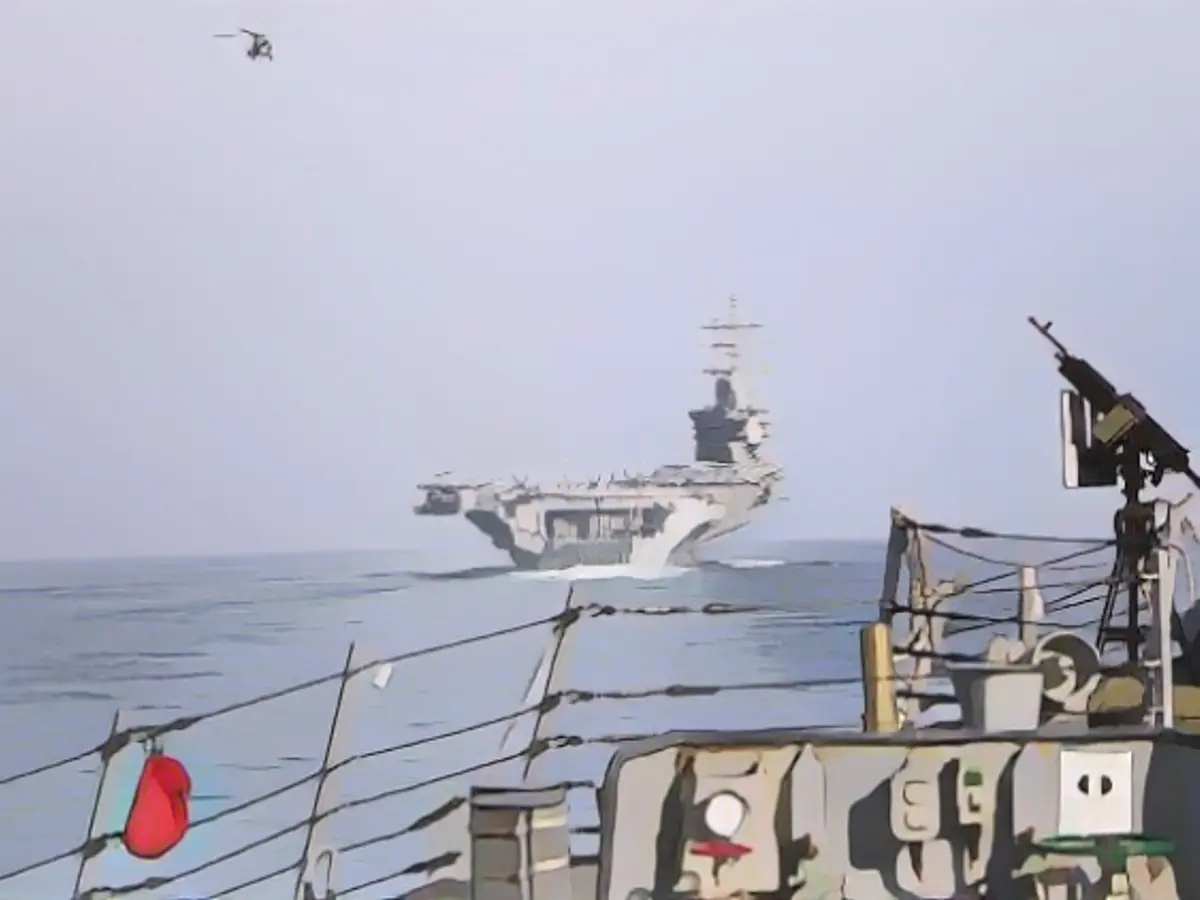Another Tanker Under Fire in Red Sea Conflicts
The Red Sea is once again a hotspot for international shipping threats, as the Norwegian-owned "Swan Atlantic" tanker became the latest target of attacks off Yemen's coast. This latest incident, reported by US government sources via Reuters, follows tensions between Israel and Hamas in the Gaza Strip that have been escalating.
The "Swan Atlantic" Incident
In a surprising twist of events, despite the Houthi rebels' Saturday announcement of easing tensions, they appeared to be the ones blowing the trumpet of renewed conflict. The "Swan Atlantic" took a hit from an area controlled by the Houthi rebels, with the crew thankfully remaining unharmed. Meanwhile, the UK Maritime Transport Office (UKMTO) reported three possible explosions off the Yemen coast, where large territories are under Houthi rule.
The Houthi rebels have been known to launch attacks on freighters in the Red Sea, targeting them due to their alleged ties to Israel. This time, they fired shells at the "Swan Atlantic," apparently in response to Israel's operations in Gaza. The US Navy's destroyer "USS Carney" responded to the tanker's distress call, making its way towards the scene.
Shipping Companies' Responses
The ongoing tensions have prompted various shipping companies to take protective measures. For instance, with the Houthi rebels attacking the MSC "Palatium III" in Bab al-Mandab, the world's largest container shipping company, MSC, decided to avoid the Suez Canal. This strategy could drive up prices due to the longer routes around Africa's southern tip.
The Danish shipping giant A.P. Moller-Maersk and French shipping company CMA CGM have also ceased container shipments through the Bab al-Mandab. This action raises hopes for higher freight prices, as shipping companies may capitalize on the volatile situation.
Enrichment Insights
The factors contributing to the escalated tensions and potential threats in the Red Sea include:
- Houthi militant attacks: The Yemen-based Houthi militia has been responsible for numerous attacks on commercial vessels in the Red Sea since November 2023. These attacks have involved drone strikes, missile attacks, and seaplane-launched attacks. They've claimed responsibility for the attacks on vessels like the "Swan Atlantic," blaming them due to their alleged connections with Israel.
- Ongoing conflicts: despite a recent ceasefire declaration by the Houthis, limiting their attacks to vessels linked to Israel, the Red Sea remains a precarious area for international shipping. The Houthis have not fully committed to ceasing all attacks, and ships with Israeli owners or flags are still considered possible targets.
- Geopolitical dynamics: The involvement of Iran, the US, and Russia in the region's conflicts adds to the confusion and volume in the Red Sea. The broader geopolitical tensions could intensify trading disruptions, potentially increasing risks to shipping in the Red Sea.
- Avoidance of shipping routes: Many shipping companies have suspended Red Sea voyages or rerouted their vessels around southern Africa aims to reduce the threat of Houthi attacks. This action has resulted in a 90% decrease in cargo vessels transiting the Red Sea since November 2023.
- Persisting volatility: The ongoing threat posed by the Houthi militia, the fragile Israel-Hamas ceasefire, and unresolved elements in the agreement indicate that Red Sea shipping will remain a dangerous environment. The risks of targeting errors, misidentifications, or weapon malfunctions remain, contributing to overall instability in the Red Sea.
These factors stir the turmoil and intensify threats to international shipping safety in the Red Sea.
Conclusion
The volatile Israel-Hamas conflict in Gaza is contributing to increased tensions and potential threats to shipping safety in the Red Sea. The most recent incident occurred when the "Swan Atlantic" tanker was attacked and hit in the Red Sea. The ongoing conflicts, geopolitical tensions, and Houthi militant attacks in the region are putting vessel safety at risk. Measures such as shipping company route diversions, ceased voyages, and increased vigilance are essential in responding to these threats.







